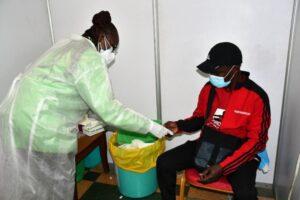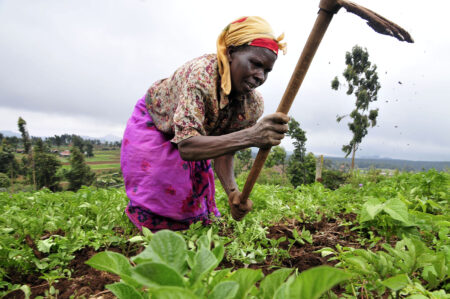- World Health Organization (WHO) has urged countries to follow science and the International Health Regulations (2005) instead of imposing flight bans on southern African nations due to concerns over the new Omicron variant
- WHO said travel restrictions might play a role in slightly reducing the spread of COVID-19 but place a heavy burden on lives and livelihoods
As a growing number of countries impose flight bans on southern African nations due to concerns over the new Omicron variant, World Health Organization (WHO) urges countries to follow science and the International Health Regulations (2005).
In a statement, WHO said travel restrictions might play a role in slightly reducing the spread of COVID-19 but place a heavy burden on lives and livelihoods.
If restrictions are implemented, they should not be unnecessarily invasive or intrusive and should be scientifically based, according to the International Health Regulations, a legally binding instrument of international law recognized by over 190 nations. This week, nations will be joining a special session of the World Health Assembly, organized by WHO to discuss how to collectively prepare and respond better to pandemics, building on their commitments to the International Health Regulations.
South Africa followed International Health Regulations, and as soon as its national laboratory identified the Omicron variant informed WHO of this on 24 November.
“The speed and transparency of the South African and Botswana governments in informing the world of the new variant are to be commended. WHO stands with African countries which dared to boldly share life-saving public health information, helping protect the world against the spread of COVID-19,” said Dr Matshidiso Moeti, WHO Regional Director for Africa.
“On the eve of a special session on pandemic preparedness, I urge all countries to respect their legal obligations and implement scientifically based public health actions. Countries which are open with their data must be supported as this is the only way to ensure we receive important data promptly.”
While investigations continue into the Omicron variant, WHO recommends countries take a risk-based and scientific approach and put in place measures that can limit its possible spread. Flight bans have been imposed on southern African countries, but only two have detected the new variant so far. Meanwhile, countries in other regions have reported cases of Omicron.
“With the Omicron variant now detected in several regions of the world, putting in place travel bans that target Africa attacks global solidarity. COVID-19 constantly exploits our divisions. We will only get the better of the virus if we work together for solutions,” said Dr Moeti.
WHO is scaling up support to genomic sequencing in Africa. Sequencing laboratories should have access to adequate human resources and testing reagents to work at total capacity.
WHO is ready to support the additional human resource needs and mobilize funds and technical expertise to reinforce COVID-19 response activities, including surveillance, treatment and infection prevention and community engagement in southern African countries. In addition, WHO is reaching out to all countries in the region to ensure they receive the necessary resources to detect and prepare for potential cases of Omicron.
WHO is urging countries to take key steps to enhance efforts to track the Omicron variant, including ensuring their PCR testing equipment can detect it, increasing their sampling and sequencing of COVID-19 test samples by at least double to 150 samples a week from the current average of 75, and review past sequencing samples for potential signs of Omicron.
In September 2020, WHO and the Africa Centres for Disease Control and Prevention launched a network of 12 laboratories to reinforce genome sequencing of the virus. Genomic surveillance has advanced significantly since the start of 2021, with the continent recording a five-fold increase in the number of genomes sequenced.
Fully vaccinated
A preliminary analysis by World Health Organization (WHO) shows that only 27% of health workers in Africa have been fully vaccinated against COVID-19, leaving the bulk of the workforce on the frontlines against the pandemic unprotected, a preliminary analysis by World Health Organization (WHO) shows.

Analysis of data reported from 25 countries finds that since March 2021, 1.3 million health workers were fully vaccinated, with just six countries reaching more than 90%, while nine countries have fully vaccinated less than 40%. In sharp contrast, a recent WHO global study of 22 mostly high-income countries reported that above 80% of their health and care workers are fully vaccinated.
“The majority of Africa’s health workers are still missing out on vaccines and remain dangerously exposed to severe COVID-19 infection. Unless our doctors, nurses and other frontline workers get full protection, we risk a blowback in the efforts to curb this disease. We must ensure our health facilities are safe working environments,” said Dr Matshidiso Moeti, WHO Regional Director for Africa.
It is essential to have high vaccine coverage among health workers for their protection and their patients and ensure health care systems keep operating during extreme need.
Africa’s shortage of health workers is acute and profound, with only one country in the region having the required health workers (10.9 per 1000 population) to deliver essential health services. Sixteen countries in the region have less than one health worker per 1000 population. Any loss of these essential workers to COVID-19 due to illness or death heavily impacts service provision capacity.
Based on data reported to WHO by countries in the African Region, since March 2020, there have been more than 150 400 COVID-19 infections in health workers, accounting for 2.5% of all confirmed cases and 2.6% of the total health workforce in the region. Five countries account for about 70% of all the COVID-19 infections reported in health workers: Algeria, Ghana, Kenya, South Africa and Zimbabwe.











